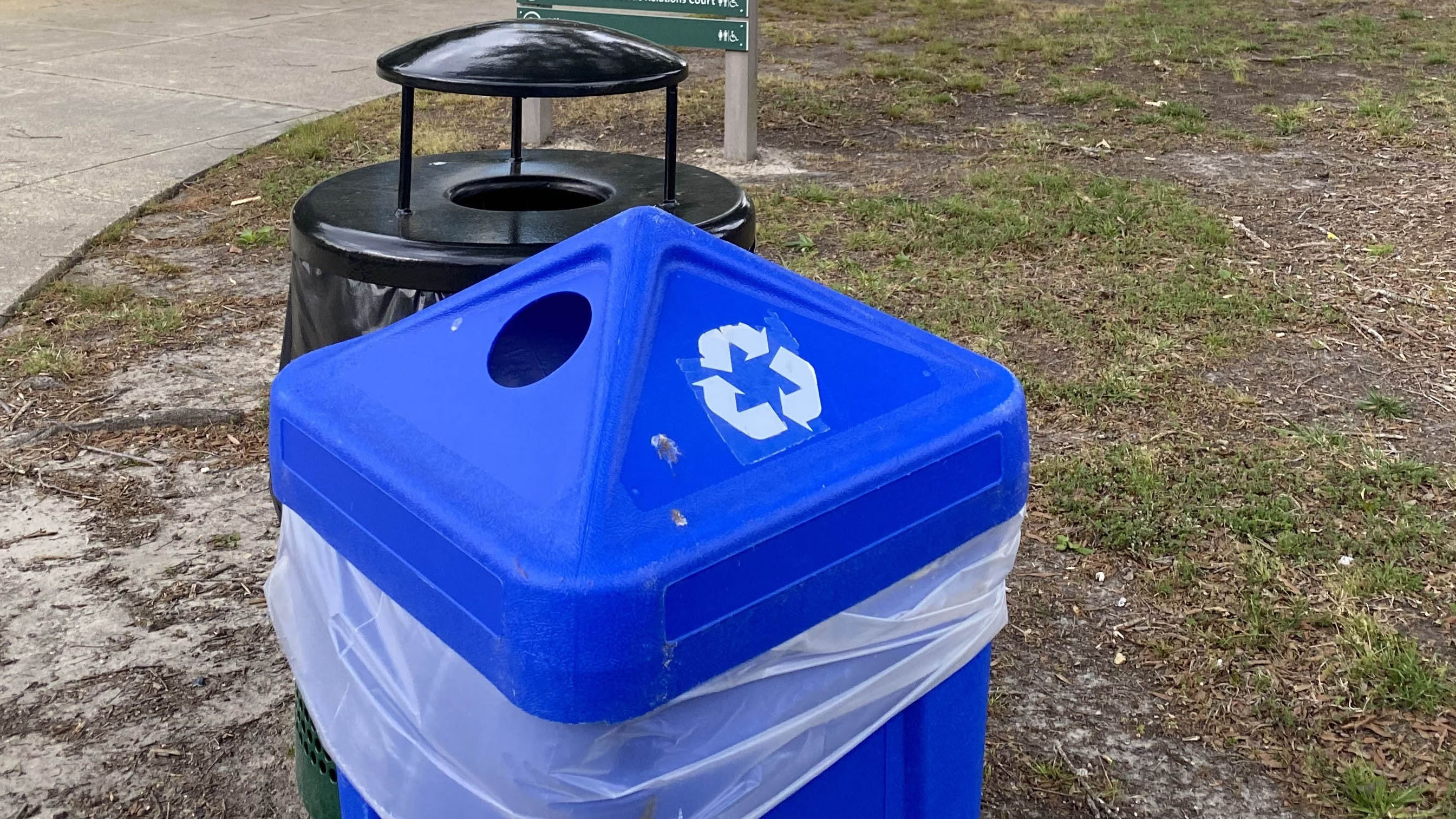
Keeping curbside recycling in Virginia Beach will require doubling monthly costs for households – but many residents say they’re willing to pay for it, city officials told City Council this week.
“If we choose to retain curbside recycling, costs will rise sharply,” said public works director L.J. Hansen. But “nothing’s going to change from a service standpoint. What you have today is roughly what you would have moving forward.”
The city has been weighing how to move forward after its current contract with Chesapeake-based TFC Recycling ends in June. Though there’s an option to extend the agreement, TFC has told the city it’s not in their best interest to do so.
Now Virginia Beach must decide whether to enter a new and pricier curbside contract or change the way it handles recyclable materials altogether.
Recent uncertainty and rising costs in the recycling market stretch back to 2018 when China stopped accepting most of the recycled materials exported by the U.S. due to stricter quality standards. Everyone tied to the recycling business has been navigating through the upheaval ever since.
Virginia Beach says the global commodities changes have made it more expensive to collect, process and ship recyclables to where they can be turned into new products.
Facing the same challenges, Chesapeake opted in 2022 to end city-funded curbside recycling, which served about 70,000 homes. The city saved $2 million and directed residents to private subscription companies instead. A coalition called Chesapeake Recycles is now pushing the city to bring back the curbside program.
About 125,000 homes in Virginia Beach currently receive curbside recycling services. The city spends more than $4.6 million on recycling each year, including operating drop-off centers and recycling at city-owned buildings.
Virginia Beach has been seeking vendors for a new contract, and received two responses so far, Hansen said. One would increase the city’s recycling costs by nearly 94% to $9 million. An even higher bid would increase the price by 221%, or about $10.3 million.
Hansen said to keep curbside under those contracts, the city would need to double households’ monthly recycling fee from $3.11 to $6.16.
The city recently surveyed residents about recycling and got a record response of almost 10,000 people. A large majority described themselves as diligent recyclers who considered it essential to have curbside services through the city.
More than a third of respondents said they’re willing to pay more to keep curbside recycling.
A lot fewer people preferred other options including switching to drop-off locations or an opt-in program – though Hansen said neither of the two current bidders was willing to offer only opt-in services.
Norfolk is also weighing what to do when its recycling contract expires this summer. About 97% of residents there who responded to a recent survey said they'd be willing to pay more to continue curbside recycling.
Moving forward, Hansen said there could be further regional changes to recycling.
The Southeastern Public Service Authority, which handles waste for much of the region, has heard from potential vendors interested in screening trash for recyclables before processing the rest of the waste.
That could reduce or eliminate cities’ need for separated curbside recycling, Hansen noted.
“That is something we should be considering long term,” he said.




